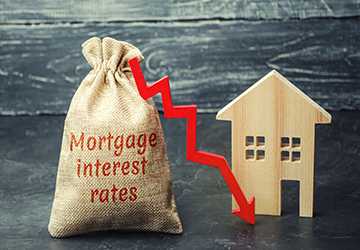Curious about the future of the housing market? Want to be one step ahead of the game and well-informed in your decisions regarding buying, selling, or sponsoring property? You have reached your destination!There is so much information available that it can be challenging to know how to filter it down. We have taken the initiative for you! In this blog post, we will cover the six vital indicators that you need to monitor. Whether you are an accomplished investor or a first-time buyer, our experts will explain how to steer the property market advantageously.

Why Understanding Real Estate Market Indicators Matters?
Pretend you have found your dream home and are ready to make an offer. But have you considered the state of the real estate market? Would prices continue to soar, or have they already fallen? Was it a buyer's or a seller's market?
These prospects can destroy or boost your plan, which is where real estate market indicators help. You can make intelligent choices, save money, and alleviate stress by tracking these essential numbers. Fortunately, one only needs a little money or hours of research to keep up with real estate offerings.
The 6 Key Indicators You Need to Watch
Let's discover the seven key metrics that will allow you to predict future trends better. With this information, you can identify these indicators and move one ahead in the real estate industry:
Home Sales
This is a significant indicator of the health of the real estate market. It encompasses two factors: the quantity of houses sold during a specific period and the median price of such sales. Rising figures are generally a good sign, while a decrease in sales contributes to a downturn.
The following factors are used to monitor it:
● Monthly and yearly sales figures
● Median home prices
● Days on the market (DOM)
Housing Starts
This is a gauge of new residential building projects that have commenced during a specific period. It can be used to forecast future supply and gauge the general sentiment of the builders about the market.
The following events took place when housing started rising:
● Builders are optimistic about the market
● There will be more homes available shortly
● Competition among buyers may decrease
Mortgage Rates
It also dramatically impacts home prices by affecting their affordability and buyer demand. Low rates can encourage more people to buy because borrowing becomes more affordable. When rates increase, it can slow down or even halt market activity.
One should monitor the following:
● The Federal Reserve's interest rate decisions
● Average 30-year and 15-year fixed mortgage rates
● Adjustable-rate mortgage (ARM) trends

Inventory
It refers to the number of homes available for sale at a given point in time. A balanced market usually has about six months' worth of inventory, which indicates that it would take six months to sell all the houses on the market.
In the event of low inventory:
● Prices may rise due to increased competition
● Sellers have more negotiating power
● Buyers may need to act quickly to secure a home
Employment and Wage Growth
These factors have varying direct and indirect effects on the real estate market's performance. For example, when people are employed and their salaries rise, they will likely invest money somewhere. Research shows that they usually invest money in purchasing homes, which increases property demand and value.
The most common employment and wage indicators to watch for include.
● Unemployment rates
● Job creation numbers
● Average wage growth in your area
Consumer Confidence
Lastly, domestic consumers' economic confidence drives the real estate market's performance. When people are optimistic about their financial future, they make more large-scale purchases, including property acquisition.
Common measures include.
● The Consumer Confidence Index (CCI)
● The University of Michigan Consumer Sentiment Index
● Media reports on the general economic outlook
Explore the Real Estate Market with Confidence Today!
Tracking these key indicators will help you feel much better about where the real estate market is headed and, more importantly, where it's likely to go next. You can easily make decisions based on your place in the real estate journey. Start tracking these seven key indicators right now, and you can control the timing of your trip. This will give you the upper hand over anyone flying blind when selling, buying, or investing. Don't let yourself be in the dark about this. Understand these trends confidently and begin making brighter, better-informed decisions today.


